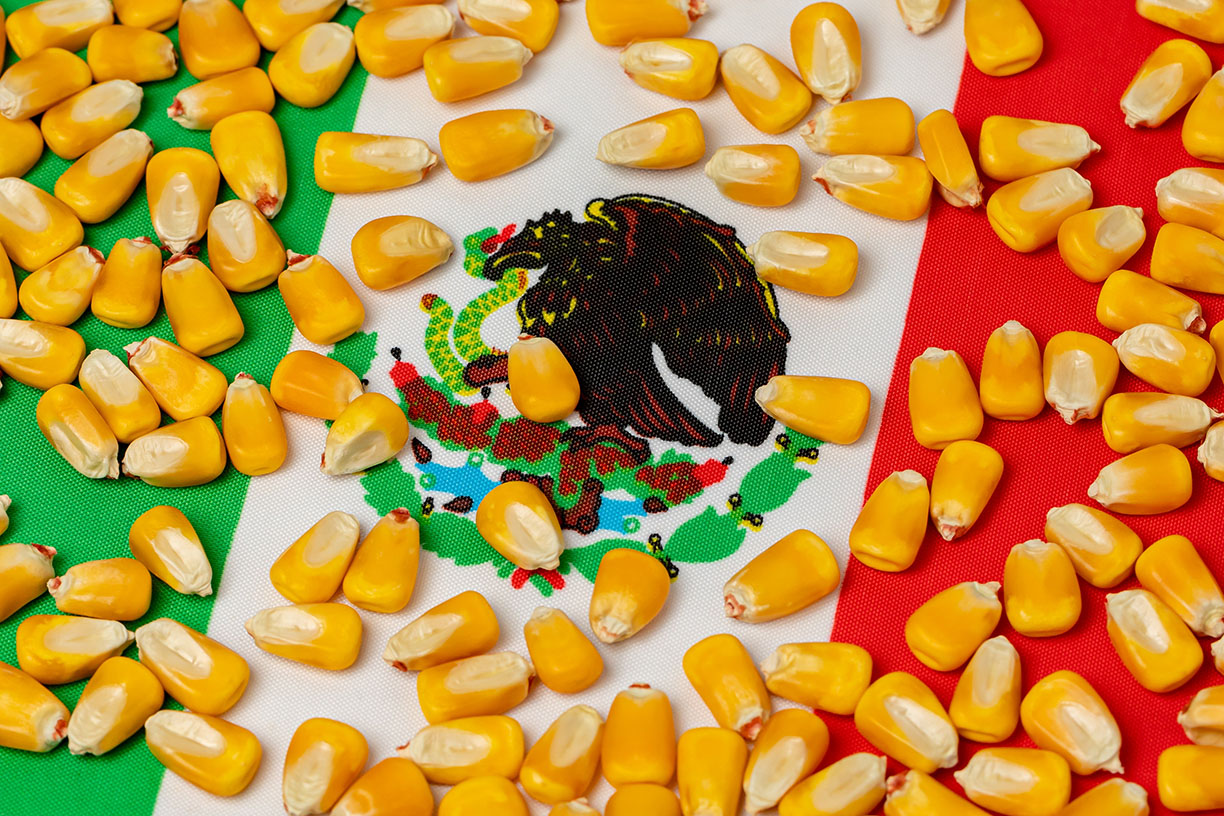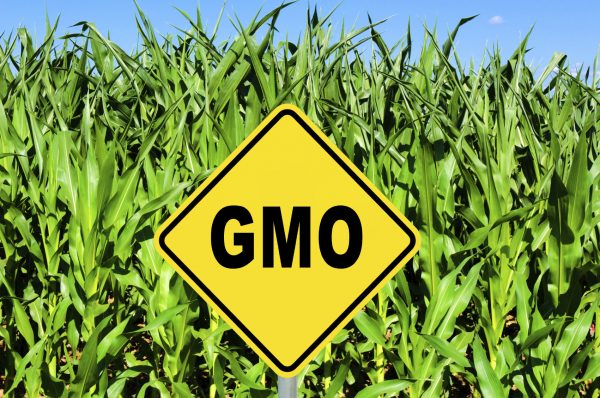Genetically modified corn poses a threat to species of corn and other basic food staples in Mexico, scientists said.
By Cody Copeland
Genetically modified corn is not safe for human consumption and threatens biodiversity in Mexico, several scientists said recently.
They made their statements as Mexico fights a bitter trade dispute with the U.S. and Canada over the importation of genetically modified corn.
President Andrés Manuel López Obrador has taken steps to gradually phase out GM corn in Mexico, vowing to completely end human consumption of the product by 2024. Business groups have urged against the ban, claiming it will hurt Mexico’s economy.
Both of Mexico’s North American trade partners have claimed that the restrictions are not based on science.
Speaking during a series of webinars held by an activist group that has opposed GM corn in Mexico over the last decade, the academics claimed that the science proving its harm to the human body has been suppressed.
“Just as the tobacco industry fabricated scientific evidence that smoking tobacco was not a health risk, science financed by private capital has fabricated evidence that the sowing and consumption of GM corn does not present a human or ecological health risk,” said Antonio Turrent Fernández, a researcher with Mexico’s National Institute for Forestry, Agriculture and Livestock Research.
This was made possible, he said, by the chronic, subclinical nature of the harm of tobacco use, and claimed that the same is happening with GM corn.
“You can smoke one cigarette and do an analysis and you won’t find harmful effects,” he said. “But we now know that if you smoke for 60 years, you’ll see very severe harm. It takes many years for it to appear.”
He pointed to a study that found that lab rats fed GM corn over the course of their entire lives were up to five times more likely to develop tumors and fatal liver and kidney problems.
First published in the scientific journal Food and Chemical Toxicology in 2012, the study was retracted in 2014 after the validity of its findings was called into question. Critics cast doubt on the size of the study groups and accused the authors of improper animal use and even fraud.
After analyzing the researchers’ raw data, the journal found no evidence of fraud, but did determine that the results were inconclusive.
However, as Turrent noted during the recent webinar, the study was later republished in Environmental Sciences Europe.
Genetic modification also presents an existential threat to native species of corn and other basic food staples in Mexico, according to Alma Piñeyro Nelson, a biologist at Mexico’s Autonomous Metropolitan University.
Placing that threat within a broader “crisis” of conservation of native Mexican varieties, she explained how genetic modification also endangers native species of beans, avocados, tomatoes, and other wild species “of which Mexico is an important reservoir.”
Native varieties of potatoes, tomatillos, chiles, squashes, vanilla, and cotton are also experiencing varying levels of endangerment, she said.
What Piñeyro called “de-ruralization” experienced by traditional forms of cultivation is exacerbating this process.
“The children and grandchildren of small-scale farmers go to work in the cities, decide to take better-paid jobs that aren’t stigmatized as work for the poor or migrate to other countries, primarily the United States,” she said.
This loss of biodiversity constitutes just one of several challenges to the conservation of native species and the culture they have come to inspire and evolve with for thousands of years, according to Carlos Ávila Bello, a researcher at Universidad Veracruzana, in the state of Veracruz.
Climate change, extractive capitalism, the patenting of genetic resources and traditional knowledge and laws and international treaties, such as the USMCA (U.S.- Mexico-Canada Trade Agreement), under which the U.S. initiated a trade dispute process in June, are other challenging factors, Ávila said.
Laws recognizing the collective rights of Indigenous communities, valuing local gastronomies and knowledge, seed banks and other recommendations are “fundamental” to preserving Mexico’s rich biodiversity of native species, he said.
To round out the session, social anthropologist Julio Glockner presented the various biocultural links between native corn species and the humans who have cultivated them here for thousands of years.
Anthropological evidence shows that corn, squash, and bean cultivation dates as far back as 10,000 years in Mexico. Over the millennia, Mesoamerican peoples associated these crops with a “sacred world view that survives to this day” both in religious and sociocultural structures.
A colloquial expression of corn “jiloteando,” referring to when young, tender ears begin to sprout silk, for example, comes from Xilonen, one of several Aztec gods based on the various stages of the plant’s growth.
“We are a country that has enjoyed the benefits of maize for centuries,” he said. “And it would be unforgivable if, whether through ignorance or apathy, we were to degrade our food by allowing the cultivation of that vegetal Frankenstein that the transnational vandals insist on offering us.”
Source: Courthouse News
“Their science is the word of God”: Mexican official derides U.S. for refusing to collaborate on GMO corn safety research

The United States recently rejected a proposal by Mexico to collaborate on research to determine the health effects of genetically modified corn.
The two countries discussed the request during a visit by U.S. Agriculture Secretary Tom Vilsack but failed to reach an agreement, according to Mexican Deputy Agriculture Minister Victor Suárez.
“They did not want to establish a period in which the two parties agree to carry out impact studies on animal health and human health,” Suárez told Reuters in an interview. “Their science is the word of God. That is not science, that is ideology.”
The U.S.’s arrogant refusal is the latest development in the dispute over Mexico’s decision to phase out imports of GMO corn for human consumption by January 2024 and to eventually replace GMO corn imports for animal feed.
Mexico asserts that GMO corn harms the biodiversity of their native corn varieties and may pose risks to human health.
U.S. interests are purely economic. Mexico now buys $5 billion worth of corn from the U.S. each year, and the majority of that corn is GMO.
The U.S. claims that Mexico’s GM ban violates the United States-Mexico-Canada Trade Agreement (USMCA) and will hurt U.S. farmers. However, some U.S. farmers and grain suppliers have said they will be happy to supply Mexico with non-GMO corn.
Mexico argues that the ban is unlikely to impact trade because the country is self-sufficient in producing non-GMO white corn for staple food products like tortillas.
In July, Mexico’s Health Ministry issued a new proposal to accelerate the ban on GMO corn in tortillas. Earlier in June, Mexico’s President Andres Manuel Lopez Obrador announced an agreement with his country’s tortilla makers that ensures they only use non-GMO white corn.
Also in June, the U.S. requested a new round of USMCA trade dispute consultations with Mexico, which are still ongoing. If the conflict is not resolved within 75 days from the consultation’s initiation, the U.S. can refer the case to a dispute settlement panel.
“If they establish the panel, we will defend ourselves. And if we defend ourselves, we think we are going to win,” Deputy Minister Suarez told Reuters.
Source: Mexico News Daily









